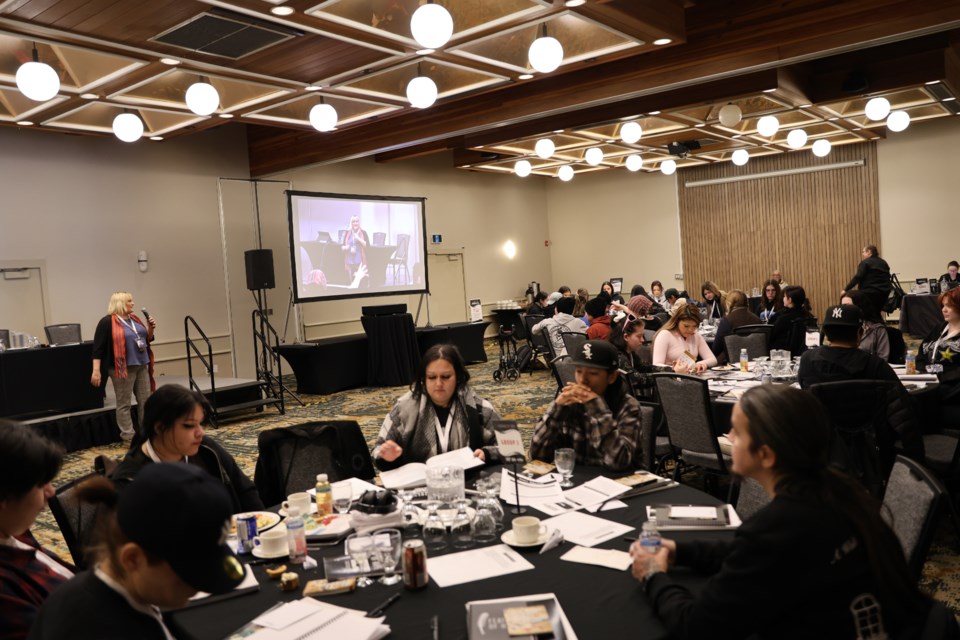THUNDER BAY — “Super insightful,” “brilliant,” and “very much above the expectations that we had,” are three ways Feathers of Hope’s project manager described the feedback local young people gave to how Canada is faring in its response to the United Nations Declaration on the Rights of Indigenous Peoples.
In January, Koral Hamilton and Feathers of Hope ran a forum for Indigenous students from the region where they learned more about UNDRIP and Canada’s action plan for its adoption. They also provided feedback to shape a report Feathers of Hope will submit to the federal Department of Justice. That report will help inform Canada’s ongoing response to UNDRIP.
“We were expecting them to stick more around things that affect their life, like education (and) school, but we saw them move into some areas like the inability to express culture in any way that is not performative,” Hamilton said of the young people’s conclusions.
“We did hear them also mention Parliament and holding Indigenous … government systems accountable,” Hamilton continued. “We did hear them talk about language, we heard them talk about residential school and the fact that they're not really getting the true story of what happened in their education.”
“And we heard a resounding thirst for accurate history, more culture and more knowledge.”
Feathers of Hope is a local not-for-profit that works to empower and amplify the voices of Indigenous youth. Hamilton said when Ottawa initially invited comment on its action plan, youth voices were excluded. The justice department did fund this Feathers of Hope initiative.
At the January forum, the students were divided into four groups. In the final Feathers of Hope report each group’s observations, conclusions and recommendations were summarized, along with overall key recommendations from the day-long session.
“We conclude that few of the required standards have been met. We believe that Canada has failed its Indigenous population,” reads the summary from one of the groups. “Violations range from a lack of autonomy over our own lands, to the forced removal of our children from culturally safe environments without the consent of their guardians.”
“A simple land acknowledgement is not the same as granting us access to, and stewardship over, our traditional territories.”
Another group of young people took Ottawa to task over the Indian status system, saying that “the government continues to control who is considered a member of a First Nation, leaving tens of thousands without status or a legally recognized community, even when they possess strong cultural ties.”
“The UNDRIP action plan promises cultural protection, but the Canadian government has failed to uphold these promises,” they wrote. “Time and time again, the articles are bent or ignored to serve government interests over the people’s needs.”
The youth called for holding the federal government to account over broken treaties, real Indigenous-led oversight into whether Ottawa upholds its commitments, better education curricula to “reflect Indigenous contributions and the true history of colonialism and residential schools,” more support for healing intergenerational trauma, reducing the stigma “that paints us as substance abusers without acknowledging the deep roots of trauma,” and returning artifacts being held in museums to their communities.
“These (UNDRIP) articles that are supposed to guarantee that they have that right to fit in, they have that right to be the same as everybody else is not necessarily being reflected in their real lived worlds,” Hamilton said.
Aside from submitting the report to the federal government, Hamilton said copies will be distributed to the Lakehead public and Thunder Bay Catholic school boards (they participated in the process), the public upon request, and potentially other organizations or levels of government.
Hamilton said people should be listening.
“I think that they should know that they need to start putting a little bit more faith, not into just Indigenous people, but especially the youth,” she said.
“Stop looking at them like they're different or they're not good enough or they're damaged or they're bad in some way, and start seeing the light that they hold because it's so, so, so bright.”
